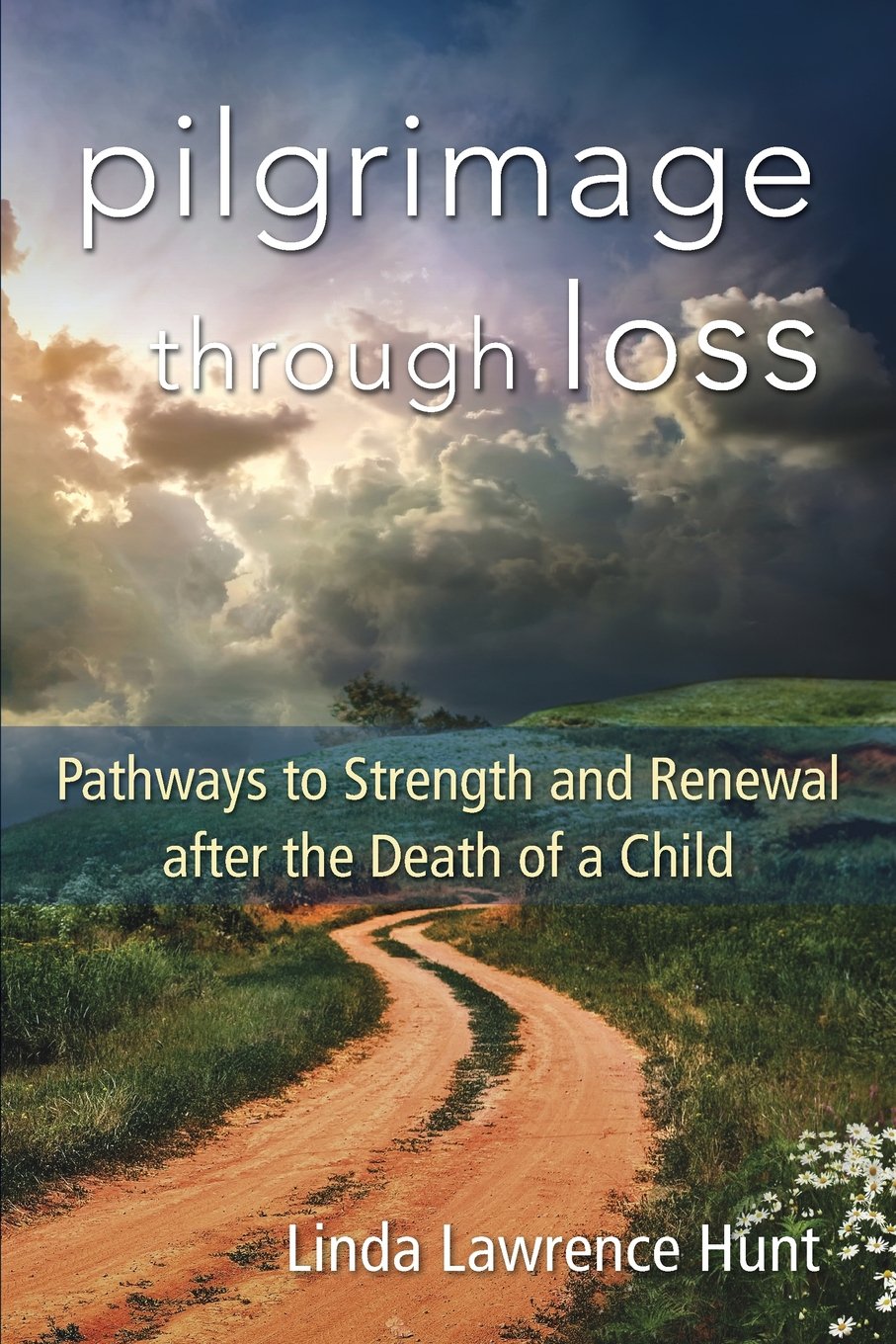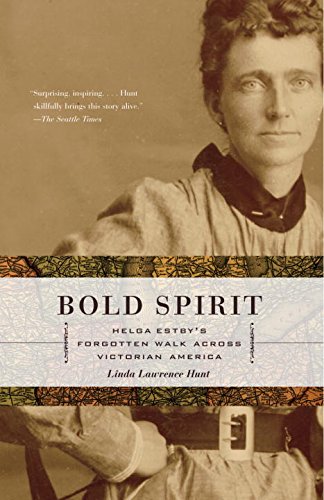Chat with Linda Hunt, author of Pilgrimage Through Loss

We all have moments in life when we receive news that touches us in a way that will illuminate our lives for a long time to come. Such was the case when, 17 years ago this month, I learned that the beloved daughter of one of my most influential college professors, Linda Hunt, had been killed in a bus accident while serving people in Bolivia. Krista was a few years younger than I, and through her mother’s stories, I knew she was an extraordinary young woman–lively, lovely, and luminous in a way few young adults are. Friends, colleagues, and family mourned her death deeply. Even those like me who had never known her personally recognized Krista’s great strength of character, her action inspired by faith, and understood that our world had suffered a terrible loss. For years afterward, I would find myself remembering Krista to the point that her dedication to service–to making a hands-on difference in our hurting world–has shaped my own determination to do so.
Krista’s mother, Linda, expressed her grief in part through storytelling, including A Terrible Beauty, which recounts the journey she and her husband, Jim, made to Bolivia, retracing their daughter’s last months. You can read her fascinating story here.
More recently, Linda has gathered her experiences, and those of other parents suffering the loss of a child, into a new book: Pilgrimage through Loss: Pathways to Strength and Renewal after the Death of a Child.

About this book: (from the publisher) The death of a child immerses parents into a life-long challenge of living with one of life’s most heartbreaking losses. Pilgrimage through Loss tells the story of one family’s journey, along with interviews from thirty other mothers and fathers who add their voices to the silences that often surround suffering in our ‘mourning-avoidant’ culture. Hunt illuminates the varied pathways parents eventually discover that open their lives to strength and healing. Rather than prescribing a path that will lead to recovery, Hunt encourages parents to find the pathways that work for them as they seek to engage life again with meaning and hope. Each chapter includes questions for reflection and discussion, plus recent research on grief and loss. Pilgrimage through Loss not only helps grieving parents, it also provides an insightful resource for those wanting to understand and come alongside a family in grief.
About the author: (from her bio) Co-founder and initial director of the Krista Foundation, Linda Hunt taught writing in the English department at Whitworth University for twenty years, where she also served as faculty director for their innovative Service-Learning program. A freelance writer and national speaker, her bestselling book Bold Spirit, a true story of a mother and daughter who walked across Victorian America (www.boldspiritacrossamerica.com), received regional and national awards. She is the mother of two surviving children, grandmother to several grandchildren, and delights in friendships with Krista Colleagues. She and her husband, Jim (a Whitworth history professor), live in Spokane, Washington, where she finds gardening a source of healing and joy.
Q&A with Linda Lawrence Hunt
Linda, welcome. Please tell my readers why you wrote Pilgrimage through Loss.
After Krista died while volunteering with her husband in Bolivia, ours hearts shattered like the shards of her bus that plunged down the mountain. A friend sent her husband Aaron (who survived the accident) words from poet Mark Doty that expressed our devastation: “How could I have been prepared for a loss the size of you?”
As an English professor, I looked for books that might help our family live with this loss. At that time there were very few that addressed specifically the death of a child. Two important ones I valued (Paula by Isabel Allende and Lament for a Son by Nicholas Wolterstorff) gave one family’s story, primarily focusing on early loss.
So I began interviewing many parents to see how they lived with creativity and strength with forever loss. We needed insights and knew others we respected who had endured such profound loss. The more mothers and fathers shared their journey, the more I began to believe their stories and our pilgrimage could be helpful to other parents who encounter such heartbreak.
We live in what researchers call a “mourning-avoidant” culture. When I speak around the nation about surviving life shipwrecks and loss, I always have parents come up to me afterwards saying people expect them to “move on” in a very short time. Pilgrimage through Loss differs from other grief books because it speaks to the lifelong arc of loss that we live with when we lose someone we deeply love. We can learn to live creatively with both sorrow and joy intertwined. It also is non-prescriptive…just giving pathways other parents discovered proved helpful. So, the need for Solace through Solitude might fit one person, where another parent needs the Companionship of Community. Many of us need a little of both.
The book also includes significant research on grief (i.e., the myth of closure, and gender patterns in grief), plus luminous poetry from poets like Mary Oliver, William Stafford, and Leonard Cohen.
[Tweet “Shared wisdom on living creatively after loss w/ sorrow & joy intertwined @Whitworth “]

You also wrote another book, Bold Spirit: Helga Estby’s Forgotten Walk Across Victorian America. On the surface, this book is about the remarkable journey of a courageous woman. Scratch a little deeper, however, and we find it’s really about what can happen when our stories are silenced. Please speak to this in the context of Bold Spirit.
When I first began researching Helga Estby’s story of her walk across America with her daughter on a $10,000 wager to save their family farm, I was fascinated in trying to understand whatever gave her the courage and confidence to attempt such a remarkable feat. I had taught Women’s History, which covered the assumptions placed on women in the Victorian era, and I knew no woman had ever achieved such an accomplishment before. The stories of their adventures across 3500 miles and the obstacles they faced and overcame grew with each new historical fact I discovered.
As I researched further (her story became the basis for my doctoral thesis), my interest expanded to a bigger question: What had caused the silencing of her story? With the death of two children from diphtheria while she was away, she returned to a family deeply angry that their mother had left, even if her reason was to save the farm and keep them together. In that era, “good” mothers simply stayed home. She broke from conventional norms, and this caused deep criticism.
The family shunned ANY discussion of her trip, and in her sorrow she self-silenced until late in life when she secretly wrote hundreds of pages about their adventures. However, at her death when her daughter–one of her nine children–discovered Helga’s manuscript, she burned it. Not only did the family miss out terribly on knowing more of their remarkable mother’s life, our nation lost a chance to read an intelligent woman’s observations crossing the continent during a historical time of transition for women.
Similar silencing has happened throughout American history until fairly recently. But storytelling has more lately been encouraged by an important academic conference on Western Women’s History, which took place in 1984 in Wyoming. As scholars noted, we didn’t have the history of Chicanos, African Americans, the Japanese internment camps, or the stories of ordinary men and women who created this nation. This “call for stories” is changing the landscape of American history, and enriching the lives of families as they learn fuller truths about each other.
Back to Pilgrimage. One thing that really stood out when I read this was the rich array of stories you share—your own, but also a plethora from those who have also suffered the loss of a child. Why is the telling of our stories so important to the healing process?
After Krista died and we began the Krista Foundation for Global Citizenship, we built a small guest retreat house called the Hearth for gatherings. One weekend I invited ten other mothers who had lost children to share their stories, especially what gestures had proved helpful in their healing. What had others done for them, and what had they done for themselves that helped them live with such loss? They all differed in the age of the child that died, causes of death, length of time since it happened. However, what they all agreed upon was they longed to hear their child’s name. “When we go to family reunions, no one wants to mention Steve in fear we might cry. It’s like he’s erased from family history.” Several mentioned how much it meant to have a friend or network where they could talk about their child and story. That’s why organizations like Compassionate Friends mean so much to some parents. Their motto is “You need not walk alone.” At their meetings, parents just share their stories with one another and many speak to how this proves key to healing on their journey.
However, for some persons, their need for more privacy means that a grief group is not ideal. They might find more meaning by writing their story in a private journal, or sharing with one trusted friend….everyone is different. What we do know is that unattended sorrow leads some persons to choices that shrink their lives, whether through unhealthy addictions, such as alcohol, shopping, even eating to mask pain. We see through veterans struggling with post-traumatic stress that burying pain rarely proves healing. We also see some persons working through grief express post-traumatic growth.
What do you hope your readers take away from your book?
After reading Pilgrimage through Loss, I hope grieving persons walk away with a deep trust in their own process and timing, plus a commitment to believe in their power to make choices toward healing. Rather than America’s pressure towards “closure,” I hope they will consider the healthy nature of continuing bonds and forever love. Who ever needs to forget one we have loved?
Thank you, Linda. It’s been such a privilege to have you here today.
After words: Have you lost a loved one and subsequently encountered a “mourning-avoidant” culture? How did this affect your grieving process? Is there anyone in your life right now who might benefit from Linda’s book?
